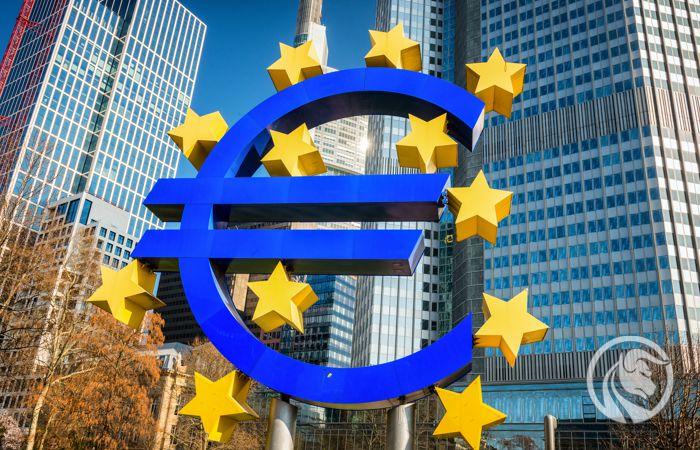The European Central Bank enters cryptocurrencies
The European Central Bank has published a document in which it explicitly indicates that it is beginning to work on a digital currency that would be official competition for decentralized cryptocurrencies. After getting acquainted with the details, however, you get the impression that there are more questions than answers.
A document you can read here (in English) is only a concept, but it sets directions in which the Digital Currencies of Central Banks (CBDCs) will take.
Big players want to have their own cryptocurrencies
From the economic hegemons, China announced the first work on a digital currency signed by the central bank. In their case, however, it is quite incoherent rhetoric, because on the one hand they criticize and combat the trade in cryptocurrencies and their use by the inhabitants of their country, and on the other hand, they are delighted with the blockchain technology, while emphasizing that these are two separate issues and cannot be combined. In addition, they plan to create their own cryptocurrency, which is to have a stable version next year. What is going on? As always in China - for central control and money. Admittedly Other countries already have their own cryptocurrency - such as Venezuela, encouraging payments in Petro - but the condition of its economy is far from average, despite the considerable oil resources.
The US is at a completely different pole and still believe that regardless of the development of cryptocurrencies, the dollar will remain the primary means of payment. They don't even look very favorably on Libra, built among others via Facebook, which has the support of the largest companies in the region. But after massive criticism it was announced that FED... will also create its own cryptocurrency.
Read more: FED wants to have its own cryptocurrency; rise of the digital dollar?
The European Central Bank wants to join
In a race on the market cryptocurrency, in which the state giants start with a delay of at least several years, wants to take part European Central Bank, which at the turn of the year announced the concept of creating a digital currency.
The problem is that the assumptions of its creation are at least partially contradictory to the freedom offered by most existing cryptocurrencies. The anonymity of the transaction can only be dreamed of. While you will be able to receive a kind of "coupon" to keep the transaction private, the coupon will be issued by the ECB, so it is obvious that you will know who has it. This will be easy to check, even if this one-time consent is anonymous. After all, the number and time of each user's transactions will be known. From here, it is only a step to analyze and reduce the number of "suspicious" transactions to a minimum. Unless the majority of users will encrypt their transactions, but current practices indicate that only a few percent of people do it, and only those who use cryptocurrencies that provide such an option (e.g. DASH). The others do not have the time or the inclination to complicate a simple transaction.
Cryptocurrency on your account, but not forever
The vast majority of cryptocurrency transactions are not anonymous, so it can be assumed that this would not be a problem for users, but the possibility of losing funds is much more controversial. Meanwhile, in the ECB script, we read that the addresses will be generated top-down, which means that, for example, the Polish tax office will be able to obtain them from the ECB and seize the account of a person who is suspected of, for example, avoiding paying taxes, and thus, for an indefinite period of time, "freeze" all the means resting thereon.

Flowchart. Source: ECB
Fortunately, these are only the first plans for the introduction of the digital currency by the ECB, so you have to hope that they will be significantly modified. Otherwise, it is difficult to expect market success, because taking away financial freedom is the last thing that people who decide to make transactions in digital money care about.






















![Forex Club – Tax 9 – Settle tax on a foreign broker [Download the Application] Forex Club - Tax 9](https://forexclub.pl/wp-content/uploads/2024/02/Forex-Club-Podatek-9-184x120.jpg?v=1709046278)
![Trading View platform – solutions tailored to the needs of traders [Review] trading view review](https://forexclub.pl/wp-content/uploads/2024/03/trading-view-recenzja-184x120.jpg?v=1709558918)
![How to connect your FP Markets account to the Trading View platform [Guide] fp markets trading view](https://forexclub.pl/wp-content/uploads/2024/02/fp-markets-trading-view-184x120.jpg?v=1708677291)
![How to invest in ChatGPT and AI? Stocks and ETFs [Guide] how to invest in chatgpt and artificial intelligence](https://forexclub.pl/wp-content/uploads/2023/02/jak-inwestowac-w-chatgpt-i-sztuczna-inteligencje-184x120.jpg?v=1676364263)


![WeWork – the anatomy of the collapse of a company valued at $47 billion [WeWork, part II] wework bankruptcy story](https://forexclub.pl/wp-content/uploads/2024/04/wework-bankructwo-historia-184x120.jpg?v=1711729561)
![Adam Neumann – the man who screwed up Softbank [WeWork, part AND] adam neumann wework](https://forexclub.pl/wp-content/uploads/2024/04/adam-neumann-wework-184x120.jpg?v=1711728724)





![How to transfer shares to another brokerage office [Procedure description] how to transfer shares to another brokerage house](https://forexclub.pl/wp-content/uploads/2024/03/jak-przeniesc-akcje-do-innego-biura-maklerskiego-184x120.jpg?v=1709556924)

![The most common mistakes of a beginner trader - Mr Yogi [VIDEO] Scalping - The most common mistakes of a beginner trader - VIDEO](https://forexclub.pl/wp-content/uploads/2024/03/Scalping-Najczestsze-bledy-poczatkujacego-tradera-VIDEO-184x120.jpg?v=1711601376)
![Learning patience: No position is also a position - Mr Yogi [VIDEO] Scalping - Learning patience - No position is also a position - VIDEO](https://forexclub.pl/wp-content/uploads/2024/03/Scalping-Nauka-cierpliwosci-Brak-pozycji-to-tez-pozycja-VIDEO-184x120.jpg?v=1710999249)
![When to exit a position and how to minimize losses - Mr Yogi [VIDEO] Scalping - When to exit a position and how to minimize losses - VIDEO](https://forexclub.pl/wp-content/uploads/2024/03/Scalping-Kiedy-wyjsc-z-pozycji-i-jak-minimalizowac-straty-VIDEO-184x120.jpg?v=1710336731)

















